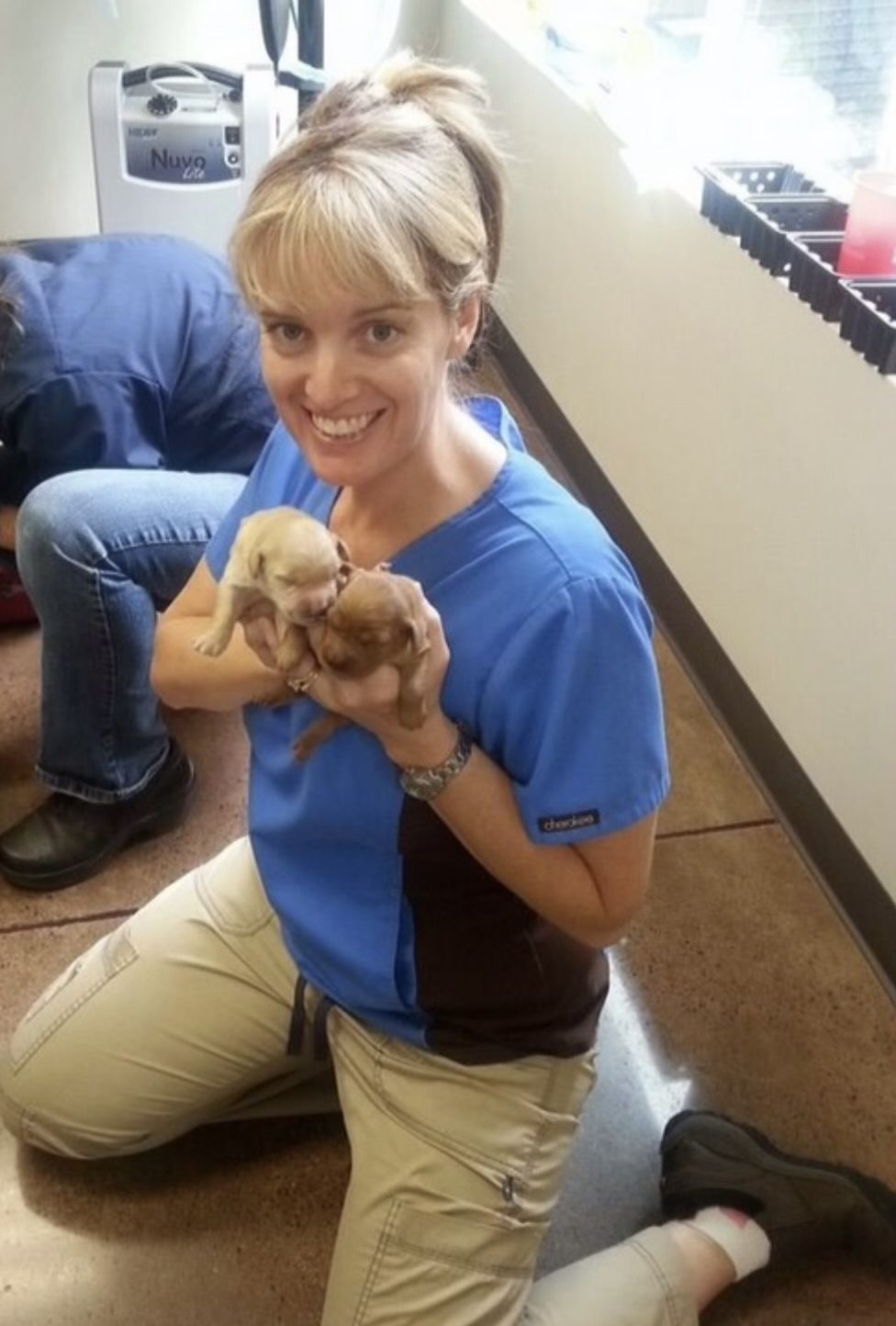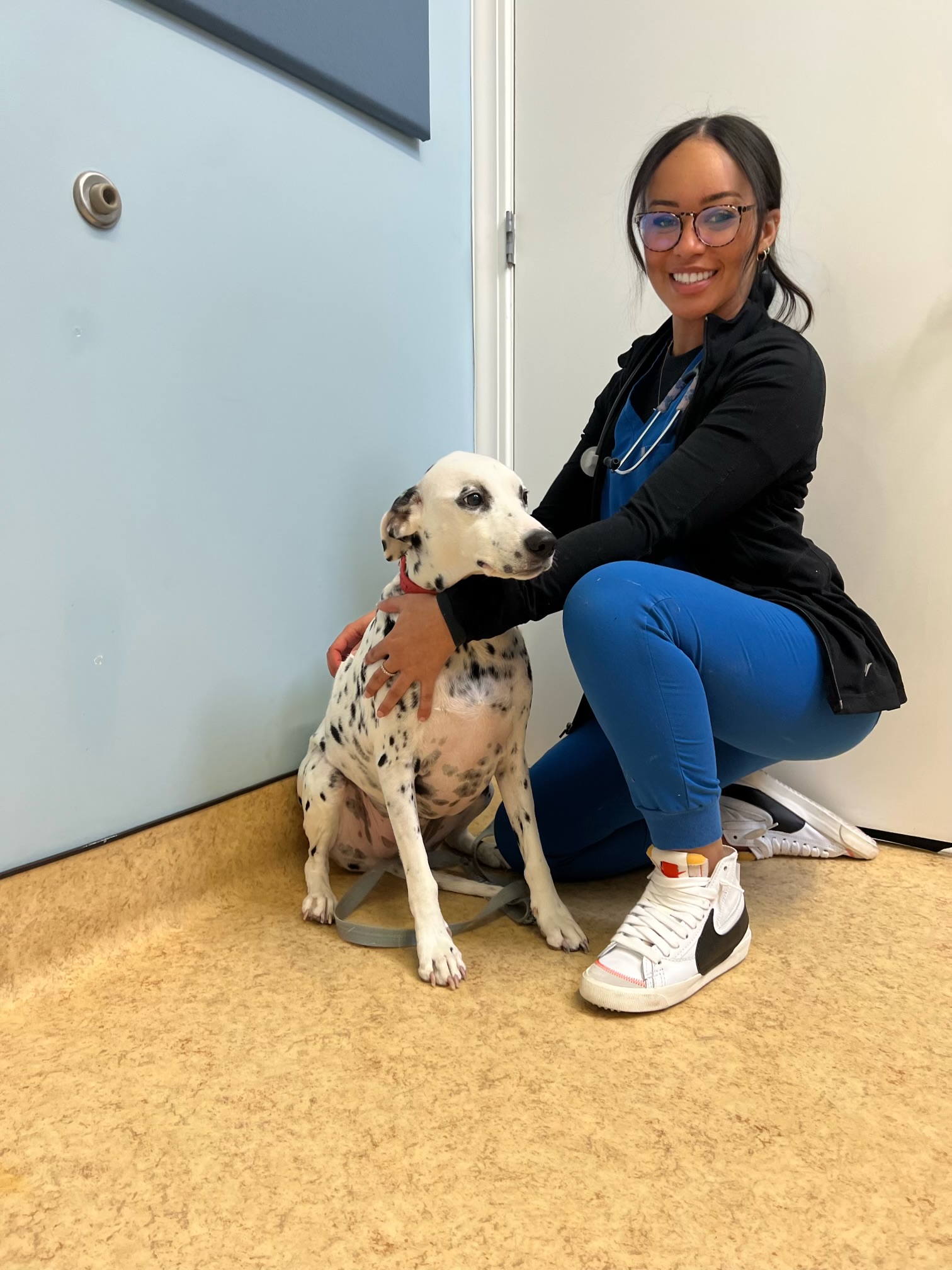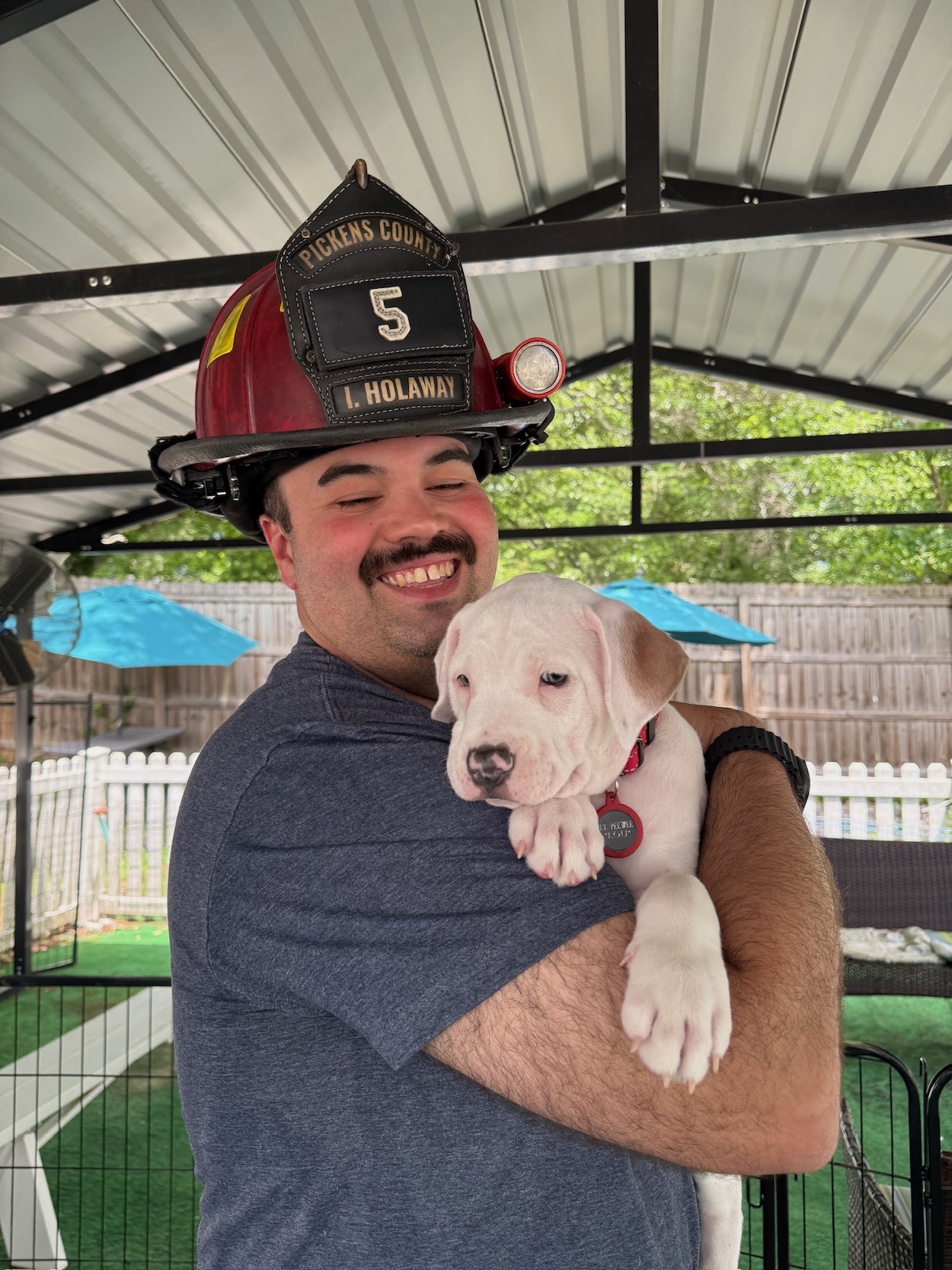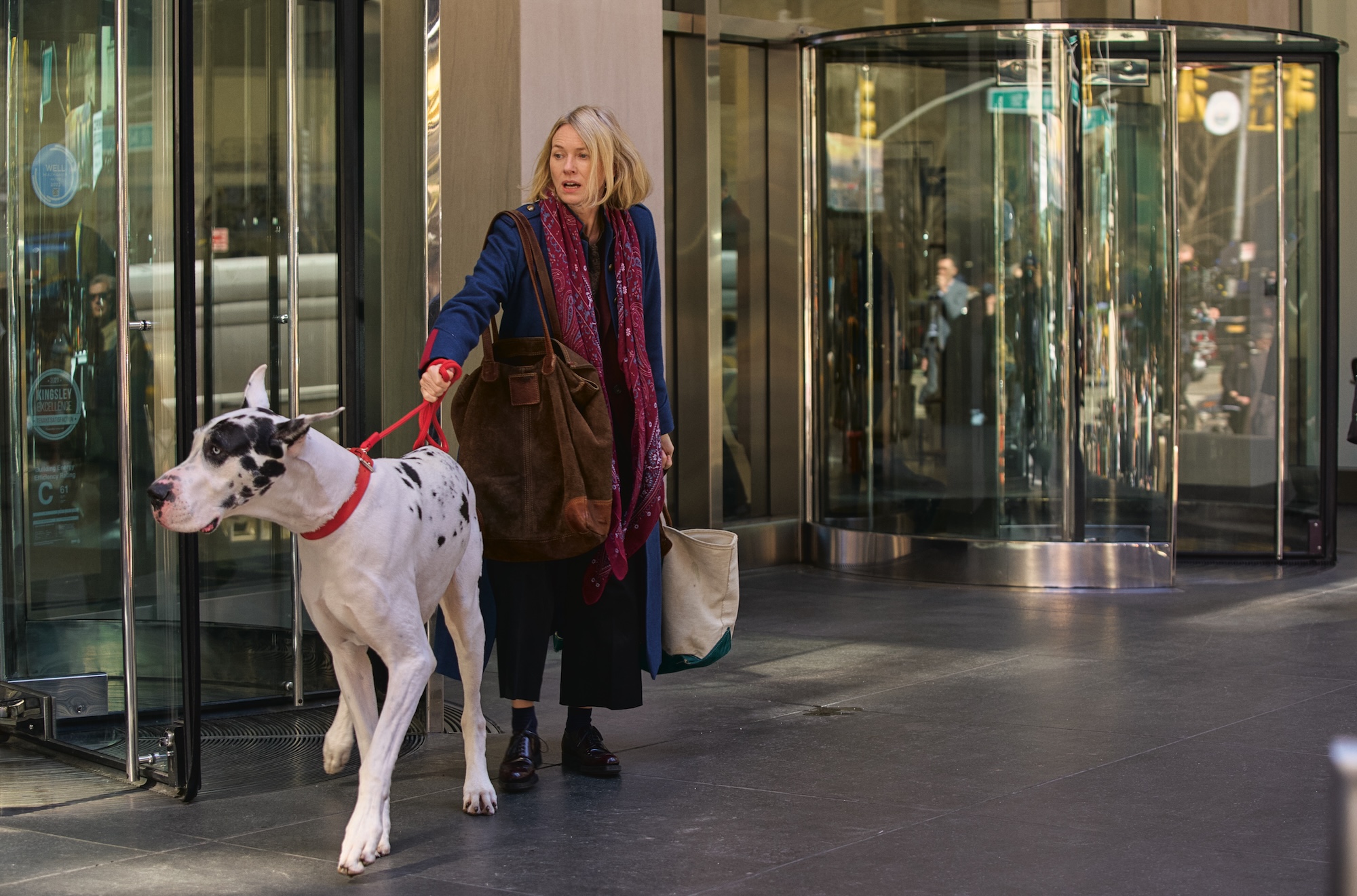October 15-21, 2023 is National Veterinary Technician Week. The occasion is a chance to recognize vet techs’ considerable abilities and contributions to dogs’ wellbeing. If you’re wondering about vet techs’ role in your dog’s healthcare, or are considering the career yourself, here’s a quick rundown of what they do.
Vet techs need many different skills
Successful vet techs must be able to support veterinarians and help the animals they care for through tasks like:
- Giving dogs initial examinations and taking their vital signs
- Performing imaging tests like X-rays
- Collecting specimens
- Administering anesthesia and monitoring patients while they’re sedated
- Assisting with various procedures, including surgeries
Kellie Bartlett, a veterinary technician who has been licensed for more than 20 years, says that “We are dental hygienists. We are laboratory technicians. We are X-ray technicians. We are general practice. We assist in surgeries. We advise on nutrition… It’s almost like it’s a do-it-all kind of job. A lot of people think that veterinary technicians just give vaccines, but there’s such another world that we are a part of.” As Bartlett attests, the work of a vet tech and their hand in pet care ranges “all the way from neonatal to geriatric.” “We put patients under anesthesia and monitor them under anesthesia,” she says. “And then we do the daytime stuff, general practice. We do splints, bandages. We do laboratory work. We read cytologies. Urinalysis. We are doing behind-the-scenes work that people don’t usually see.”
Veterinary technicians typically need an associate’s or bachelor’s degree, plus state certification, to do the job. They may also receive specialized training and certification in specific areas like dentistry, anesthesia, or internal medicine.
Vet techs are a key point of contact for dog people in a veterinary practice
In addition to the knowledge and technical skills above, a great vet tech will also be good at communicating with the humans who come through their practice—sharing information and instructions about how people can help their dogs stay healthy or get better.
Asked how she gains the trust of those who visit a practice during a stressful time, Bartlett says: “I sit down, I listen, and I ask questions. And if I don’t know the answer, I’m honest—and I go and seek out the answer.”
Vet techs work closely with veterinarians. While veterinarians are the ones who will make diagnoses, perform surgeries, and prescribe medications, vet techs will often be the professionals at a practice with whom you have the most direct contact.

Kellie Bartlett
Being a vet tech can be very rewarding
Vet techs get to work closely with pets to keep them healthy. It’s a rewarding job for those who love animals, and that’s a big part of what draws people to it.
“It’s just a feel-good job,” Bartlett says, and the perks include “a great look in the eyes” and other signs from dogs she treats that they appreciate her doing things—like putting pillows underneath their elbows as they recover from anesthesia—to make them more comfortable.
Because vet techs have so much hands-on time with the dogs who visit practices, they can be a key part of making the dogs comfortable. Talk to the vet techs at your practice. Find out what they do to give dogs the best experience possible, and share anything that might make it easier for them to do so specifically with your dog. What words, treats, and toys relax your pup?

Erin Kidwell
Vet techs face challenges
Being a vet tech can also be difficult. There’s the emotional challenge that comes with treating animals who are sick, especially when not all of them can be saved. And sometimes a vet tech might go from a euthanasia appointment straight to a new-puppy checkup, needing to give all of their energy and concentration to each one.
Bartlett finds humane euthanasia appointments to be among the most rewarding parts of her job—because they provide relief to dogs who are suffering and are an opportunity to support humans who are losing their companions—but there’s no getting around the reality that they involve facing the death of a beloved living creature. Erin Kidwell, a vet tech at Springhurst Animal Hospital in Louisville, Kentucky, says she handles one to two euthanasia procedures a day. “I try to stay strong for the client,” she says, “but usually I cry with them. I cry right alongside them, and just kind of let them know that I’m there for them. It definitely takes a toll on me, especially if it’s a patient I’ve worked with for a while, or have had some sort of connection with.”
Other challenges faced by vet techs include long workdays—their shifts vary, but can be 10 to 12 hours—and worries about compensation. While figures vary, the Bureau of Labor Statistics says that in 2022 the median pay for an American veterinary technician was $38,240 per year. A survey by the National Association of Veterinary Technicians in America found a higher average salary—$52,000 a year—but 39% of surveyed vet techs said the pay was the most challenging aspect of their job, and a third of them reported holding a second job.
It can also be difficult to communicate with patients who don’t comply, or simply have trouble following directions—or who, because they are stressed about their pets’ health, may take anger or frustration out on the vet techs they encounter.
Remember that your vet tech is a resource—and a human being
Vet techs’ skills and knowledge mean that they can give you a lot of valuable insight into your dog’s health, and you should feel free to ask them questions and advocate for your pet. Considering that you won’t always be able to get ahold of a veterinarian for every question, asking vet techs about their areas of expertise can save you time and worry. But, when you’re doing so, always be kind and respectful.
Vet techs care about animals, too, and are often working long hours under stressful conditions—if you’ve tried to make a veterinary appointment lately, you may have noticed that many practices are scheduled wall-to-wall. A good rapport with your vet tech will make both of your days easier, and may also yield more peace of mind about your dog’s health.
If you’re a veterinary professional, learn more about The Farmers Dog in our vet pro portal.




